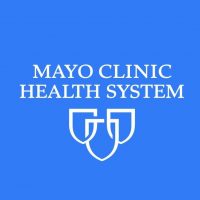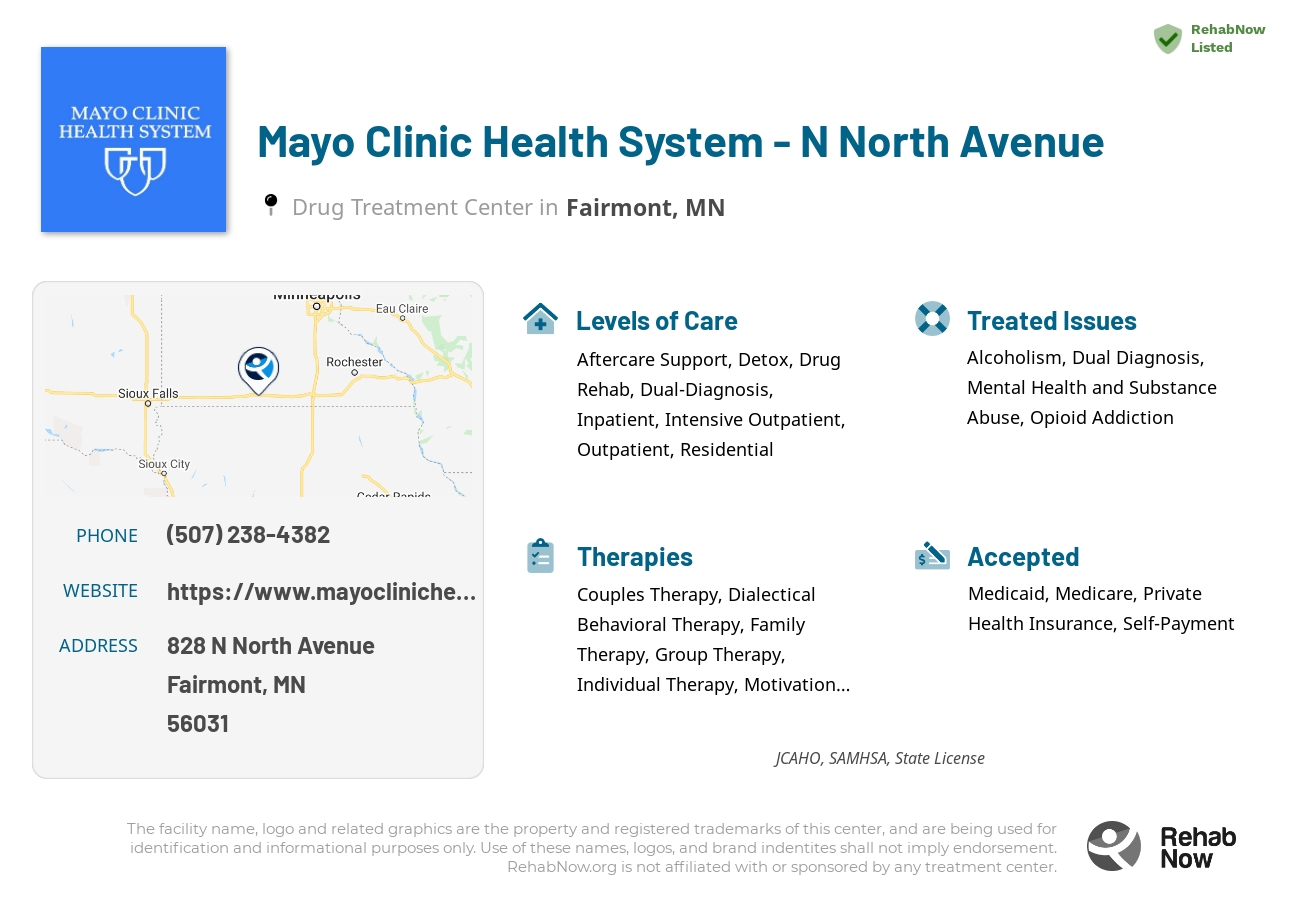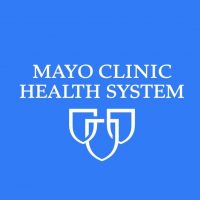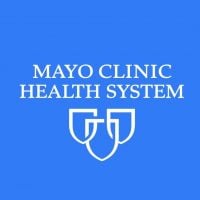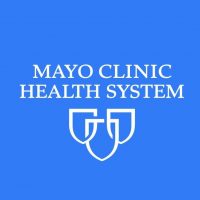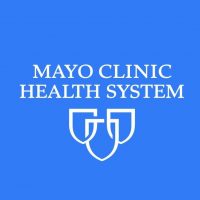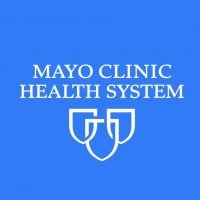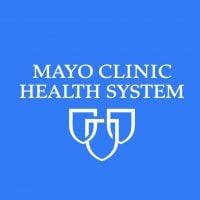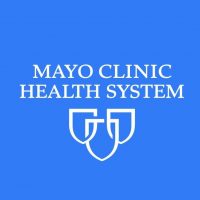Mayo Clinic Health System - N North Avenue
Drug Rehab Center in Fairmont, Minnesota
Mayo Clinic Health System in Fairmont, Minnesota offers comprehensive outpatient addiction treatment services with an individualized treatment plan and evidence-based addiction treatments and therapies, including cognitive behavioral therapy, family and recreational therapy, 12-step recovery, and relapse prevention, among others.
About Mayo Clinic Health System - N North Avenue in Minnesota
Mayo Clinic Health System - N North Avenue in Fairmont, Minnesota offers comprehensive outpatient addiction treatment services to individuals in the surrounding area. Their team of dedicated and experienced professionals provides individuals with an individualized treatment plan, focusing on evidence-based addiction treatments and therapies. They specialize in cognitive behavioral therapy, family and recreational therapy, 12-step recovery, and relapse prevention, among others. In addition, the facility provides many additional resources to help individuals in their recovery journey, such as support groups, education, and social engagement.
At Mayo Clinic Health System - N North Avenue in Fairmont, Minnesota, their addiction treatment services are tailored to meet the needs of each individual. Their team of caring and knowledgeable clinicians strive to promote the development of healthier coping skills, as well as provide a sense of hope and a healthier outlook on life. They also focus on providing the necessary support and resources to help individuals work through the challenges associated with addiction. Additionally, the team at Mayo Clinic Health System - N North Avenue provides personalized, compassionate care to each individual who seeks help.
Mayo Clinic Health System - N North Avenue in Fairmont, Minnesota is accredited by The Joint Commission, and is also licensed to provide substance abuse and addiction treatment services by the Minnesota Department of Human Services. The facility is proud to have won the 2019 Outstanding Commitment to Care and Community Award from the Minnesota Hospital Association. They are also dedicated to providing meaningful and life changing treatment services to all of their clients, and they understand the importance of providing support and resources to help individuals in their recovery journey.
Genders
Ages
Modality
Additional
Accreditations
State License
SAMHSA

JCAHO
Conditions and Issues Treated
Opioid addiction treatment should be done in a medically supervised drug rehab. While taking opioids, users will typically use other substances to enhance the effects of opioids or to reduce the adverse effects of opioid use. Opioid addiction treatment will include detoxification and drug rehab counseling to help both the user and their loved ones learn how to live a successful sober lifestyle.
Treatments such as methadone, buprenorphine, and naltrexone are three medications that can help treat opioid addiction. These drugs work on the brain’s pleasure center and reduce cravings and the effects of illicit opioids such as heroin. These drugs can be either given orally or by injection. Individual drug rehab counseling sessions can be helpful to discuss any questions or concerns with the drug treatment program. This counseling will also help the user set goals for when they finish drug rehab.
Opioid addiction recovery is a long process. Many of the changes to the brain caused by opioid use cannot be undone, but with time and the proper treatment, a person can return to normal function. After detox, treatment will include drug rehab counseling and entering a halfway house or sober living community. Aftercare is critical to long-term recovery, as it helps the user avoid relapsing and entering back into drug rehab.
Levels of Care Offered
This center offers a variety of custom treatment tailored to individual recovery. Currently available are Aftercare Support, Detox, Drug Rehab, Dual-Diagnosis, Inpatient, Intensive Outpatient, Outpatient, Residential, with additional therapies available as listed below.
An addict may have to go through alcohol or drug withdrawal. While detox may be uncomfortable, it is not life-threatening. Detoxification allows the addict to rid the body of all traces of drugs or alcohol and gives the addict a clean slate for their recovery. In an inpatient or outpatient setting, detox can be managed medically.
Inpatient treatment for alcoholism or drug addiction is an option that provides the addict with a supportive environment in which they can stop using. This type of treatment is appropriate for addicts that are most in need of intensive care and supervision. This includes those who were unable to quit on their own, those who need more structure than they can get in outpatient treatment.
Intensive outpatient treatment is a type of comprehensive addiction care. Unlike conventional residential treatment programs, the patients live at home during the recovery process. This means that one can continue working and caring for their families. These also allow people to keep pursuing their studies while also working on their sobriety.
Outpatient treatment can help one transition to normal life from the round-the-clock supervision and treatment available during inpatient treatment. It is an excellent tool to ensure long-term recovery. However, it is essential to note that intensive outpatient treatment in itself does not remove patients from the real-world setting. This means there’s always a higher risk of coming across environmental triggers. To further prevent relapse, an outpatient treatment center should be able to provide ongoing support services.
Once the patient is enrolled in an intensive outpatient treatment program, they will be expected to attend therapy and group meetings daily for a stipulated period. The frequency and duration of each session will depend on the patient’s needs and level of addiction. This can help curb the habit and deal with underlying issues that led to it. Most of these professional treatments are designed to allow patients to structure their daily schedules in a way that is conducive to recovery.
“Outpatient treatment is ideal for those who have a lower intensity addiction. It’s also suitable for those with a supportive environment and those on a tight budget.
Outpatient treatment can be considered the lowest intensity level of addiction treatment. It is ideal for early phase addiction or lower intensity addictions. It may involve weekly sessions instead of daily. Peer group support, 12-step programs, and individual counseling may still be used and anti-addiction medication.
Residential treatment programs are those that offer housing and meals in addition to substance abuse treatment. Rehab facilities that offer residential treatment allow patients to focus solely on recovery, in an environment totally separate from their lives. Some rehab centers specialize in short-term residential treatment (a few days to a week or two), while others solely provide treatment on a long-term basis (several weeks to months). Some offer both, and tailor treatment to the patient’s individual requirements.
Aftercare support is vital to those who have completed a drug or alcohol treatment program. This support comes in individual and family counseling, treatment of psychiatric and other medical conditions, and medications to reduce cravings. It helps recovering addicts adjust to normal day-to-day activities and can last for a year or longer.
The majority of drug and alcohol addicts who receive aftercare treatment do not relapse. It is estimated that without aftercare, the relapse rate will be between 70 to 90 percent for most people. Aftercare is the final stage in addiction recovery, but it will also help maintain sobriety if relapse does occur.
Therapies & Programs
No single treatment works for all addicts; therefore, the goal of treatment and therapy should be to find what works best for each individual. Some people requiring addiction treatment may only need a few weeks of inpatient care. Others will require long-term residential care. Tolerance and withdrawal levels vary from person to person and thus affect the intensity of the treatment needed.
If an individualized approach to treatment and therapy is not offered, addicts may fail to reap benefits from their efforts. Professionals must customize plans according to their patient’s needs, limitations, and strengths. The goal of all forms of addiction treatment should be for addicts to find healthy ways to cope with their addiction and its underlying causes.
Couples therapy for drug addiction is a unique form of therapy that allows family members to work through the emotional issues of their loved one’s addiction together. Family members can support each other while learning how to cope with the addiction and encourage healthy changes.
Accordingly, couples therapy for drug addiction is designed for an addict and their significant other or spouse. The two will work with a therapist to learn how the addiction affects themselves and the relationship and how to break the negative patterns of behavior that may have developed.
Drug addiction can destroy a person’s life, as well as their family and friends. The loss of one’s ability to choose how to live and behave often leads the addict into depression, anger, guilt, and many emotional problems.
The therapies usually include siblings, children, and parents who are involved in their daily lives. These sessions are vital because they address past issues that may have hampered an addict’s or alcoholic’s recovery and provide support at a crucial time!
One of the most critical aspects of family therapy is helping addicts’ loved ones see their situation in a new light. It’s also one of the most challenging things a family can do when a loved one struggles with addiction or alcoholism.
Group therapy is held in a safe, controlled setting where patients can feel comfortable sharing their struggles and gaining perspective through shared conversations. It takes place in a group rather than one on one to prevent feelings of isolation or being unique in their situation while creating an environment for addicts at Mayo Clinic Health System - N North Avenue to develop fellowship, accountability, and support. Group therapy is an important tool in recovery that prevents cravings that prompt a return to active addiction.
Dialectical Behavior Therapy is a form of Cognitive Behavioral Therapy that helps patients understand the relationship between their thoughts, feelings, and behaviors. It is beneficial for those whose addictions and behaviors stem from severe mental health issues. It aims to help the patient achieve their goals and identify how they can enhance their lives.
Cognitive-behavioral therapy is a talking-based method that helps people struggling with addiction replace destructive behaviors with healthier ones. CBT also helps them identify the underlying thoughts and beliefs that cause these behaviors in the first place and ways to control those thoughts and feelings. It can be administered as a holistic therapy or as part of combination therapy and—as opposed to turning to drugs and alcohol—helps addicts learn how to respond to negative thoughts instead.
When you leave a healthy lifestyle behind to live as an addict, your body becomes unbalanced. Nutritional deficiencies gradually creep in, and before you know it, you’re facing severe health problems. For people who are trying to kick their drug addiction, nutrition therapy at Mayo Clinic Health System - N North Avenue is a great tool. It helps restore balance to the body, and for many addicts, it represents the first step on the road to recovery.
Nicotine replacement therapy is a way for people to get the nicotine they are addicted to without having to smoke cigarettes. There are several different types of devices that have been approved for NRT. Studies have shown that all NRTs work better than placebo (fake treatment). NRT helps smokers get nicotine into their system without resorting to smoking and experiencing aggressive withdrawal symptoms. Coupling NRT with counseling and other means of support gives long-term smokers a better chance of removing their unhealthy habit.
Payment Options Accepted
For specific insurance or payment methods please contact us.
Is your insurance accepted?
Ask an expert, call (888) 674-0062
Mayo Clinic Health System Associated Centers
Discover treatment facilities under the same provider.
- Mayo Clinic Health System - Eau Claire in Eau Claire, WI
- Mayo Clinic Health System - Eastridge Clinic in Mankato, MN
- Mayo Clinic Health System - Owatonna in Owatonna, MN
- Mayo Clinic Health System - Belle Plaine in Belle Plaine, MN
- Mayo Clinic Health System - Fairmont in Fairmont, MN
Learn More About Mayo Clinic Health System Centers
Additional Details
Specifics, location, and helpful extra information.
Fairmont, Minnesota 56031 Phone Number(507) 238-4382 Meta DetailsUpdated November 25, 2023
Staff Verified
Mayo Clinic Health System - N North Avenue Patient Reviews
There are no reviews yet. Be the first one to write one.
Fairmont, Minnesota Addiction Information
Minnesota is fighting an opioid epidemic that is leaving hundreds of its residents dead each year. Both prescription opioids and illicit opioids are widely abused in the Land of 10,000 Lakes. Heroin continues to be one of the most commonly abused drugs in the state, if not the most common illicit drug. Over 10% of all treatment admissions in Minnesota list heroin as their drug of choice.
The drug addiction problem in Fairmont, Minnesota, is relatively bad. The most commonly abused drugs in Fairmont include methamphetamine, heroin, and prescription opioids. From 2002 to 2016, the number of drug poisoning deaths involving synthetic opioids (other than methadone) increased by 533%. There are many drug treatment options available for someone looking to get sober in Fairmont. Some of the most common treatment options include inpatient rehab, outpatient rehab, and detox programs.
Treatment in Nearby Cities
- Sandstone, MN (187.9 mi.)
- Moorhead, MN (249.0 mi.)
- Long Prairie, MN (161.3 mi.)
- Luverne, MN (87.1 mi.)
- Red Lake Falls, MN (304.8 mi.)
Centers near Mayo Clinic Health System - N North Avenue
The facility name, logo and brand are the property and registered trademarks of Mayo Clinic Health System - N North Avenue, and are being used for identification and informational purposes only. Use of these names, logos and brands shall not imply endorsement. RehabNow.org is not affiliated with or sponsored by Mayo Clinic Health System - N North Avenue.
